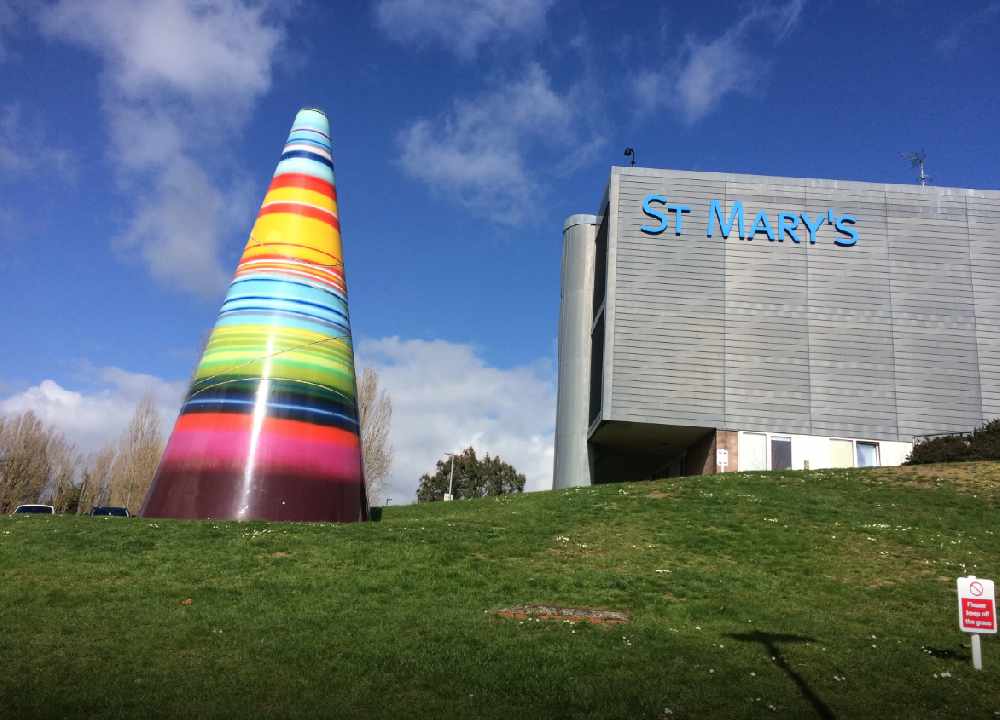
"Still in the eye of the storm" — the stark warning from the Isle of Wight’s top NHS boss as the Island’s only hospital remains under considerable strain.
As case rates steadily start to slow down, now falling to 415 cases per 100,000 from an peak earlier in January of 1,171.6, chief executive of the Isle of Wight NHS Trust, Maggie Oldham, said services are still being pushed to their limits and that people should not get complacent.
To cope with the surge in acutely ill patients, some of the trust’s more routine services have been stood down but Ms Oldham said doing that affects some patients’ quality of life as they have to wait longer for operations and care.
The intensive care unit at St Mary’s Hospital, in Newport, is working at 50 per cent higher capacity than it is normally commissioned to provide.
Last week, the IW NHS Trust revealed patients had been airlifted to hospitals on the mainland as it no longer had the capacity to treat them.
Staffing troubles are also plaguing the hospital, with around 10% of staff out sick or isolating due to being in close contact with a Covid case. In the ambulance service, staff absences peaked at over 20%.
Speaking at a meeting of the Isle of Wight Council’s Health and Wellbeing Board, Ms Oldham said it was pleasing to recognise the prevalence is coming down but sadly for her it still feels like ‘we are in the eye of the storm’.
She said:
“As it is today [Thursday, January 28] the IOW NHS Trust and particularly its acute, community and ambulance services, are under considerable strain, our mental health colleagues also.
“We continue to see very high levels of patients needing our care — we are far from a position that we feel we have started to see the worst of it.”
The latest variant of Covid-19 is more transmissible and was, at one point, accountable for 90% of the Island’s Covid cases, which have now surpassed a total 6,000.
January alone accounts for more than half of the Island’s cases as the new variant spread through the community.

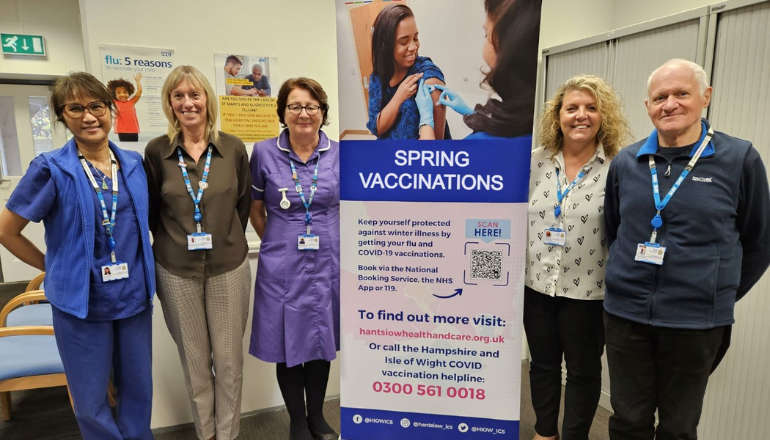 St Mary’s Vaccination Hub Gets Ready For Spring Covid-19 Vaccinations
St Mary’s Vaccination Hub Gets Ready For Spring Covid-19 Vaccinations
 Twenty Isle Of Wight Pubs Under Threat As Stonegate Issues Profit Warning
Twenty Isle Of Wight Pubs Under Threat As Stonegate Issues Profit Warning
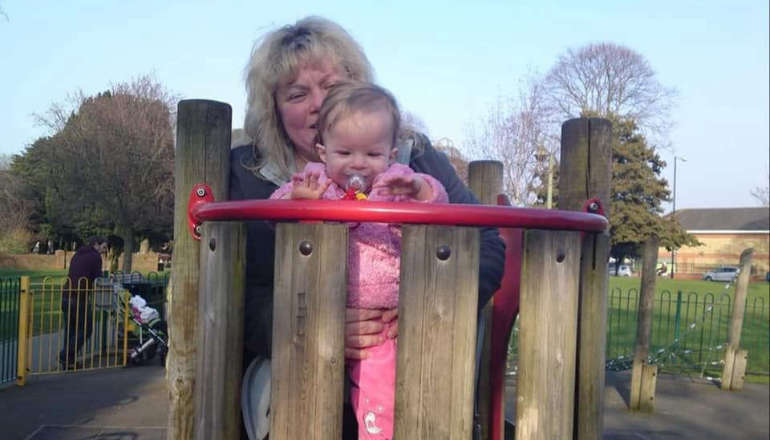 Fundraiser Launched As Kezi's Kindness Founder Diagnosed With Incurable Cancer
Fundraiser Launched As Kezi's Kindness Founder Diagnosed With Incurable Cancer
 Bon Voyage — White-Tailed Eagle Soars To France
Bon Voyage — White-Tailed Eagle Soars To France
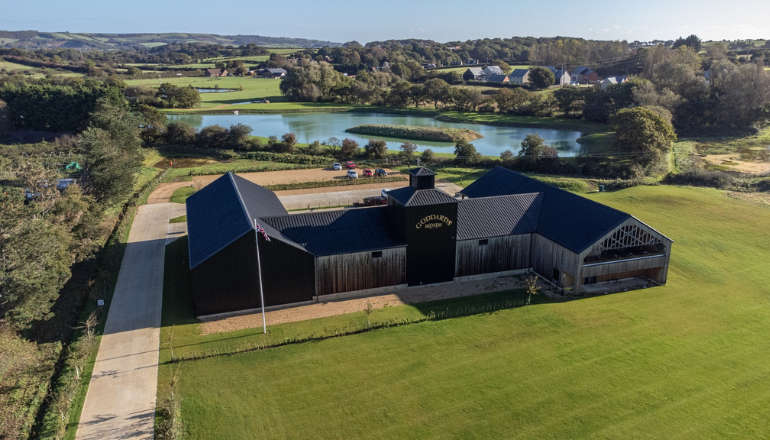 Goddards Brewery Scoops Four Top Industry Awards At International Competition
Goddards Brewery Scoops Four Top Industry Awards At International Competition
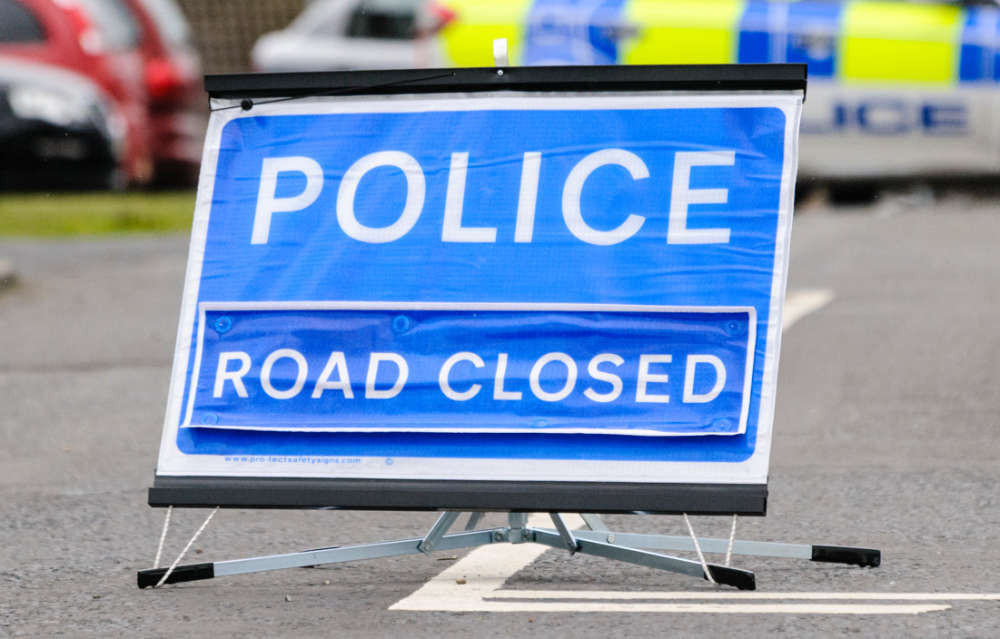 Briddlesford Road Crash Results In Two Injured
Briddlesford Road Crash Results In Two Injured
 Isle Of Wight MP Extolls Virtues Of Joint Emergency Service Officers For Isle Of Wight
Isle Of Wight MP Extolls Virtues Of Joint Emergency Service Officers For Isle Of Wight
 Island Labour Announces Parliamentary Candidates As Quigley Vows To 'Take Fight' To Bob Seely
Island Labour Announces Parliamentary Candidates As Quigley Vows To 'Take Fight' To Bob Seely
 Can You Help Police To Identify Man Linked To Waitrose Theft?
Can You Help Police To Identify Man Linked To Waitrose Theft?
 Ryde Town Council In Crackdown On Dog Fouling
Ryde Town Council In Crackdown On Dog Fouling
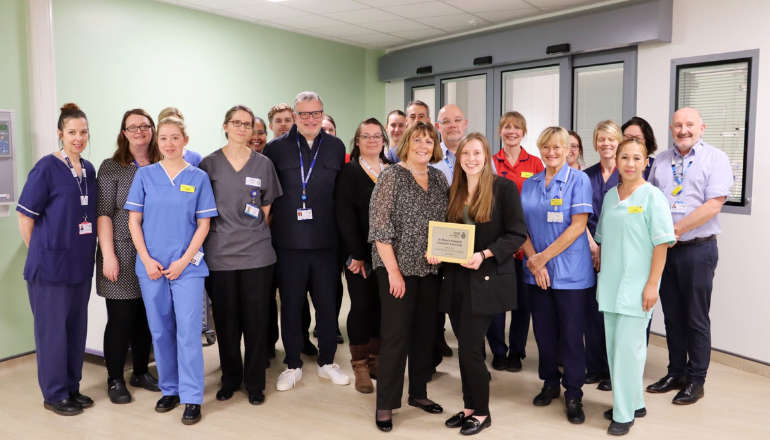 Former Patient Opens New Intensive Care Unit
Former Patient Opens New Intensive Care Unit
 Isle Of Wight Primary School Place Allocations Announced For September
Isle Of Wight Primary School Place Allocations Announced For September
 The Rules Islanders Need To Know For Police And Crime Commissioner Election Postal Voting
The Rules Islanders Need To Know For Police And Crime Commissioner Election Postal Voting
 Family Pays Tribute To Paul Hart Following Fatal Newport Collision
Family Pays Tribute To Paul Hart Following Fatal Newport Collision
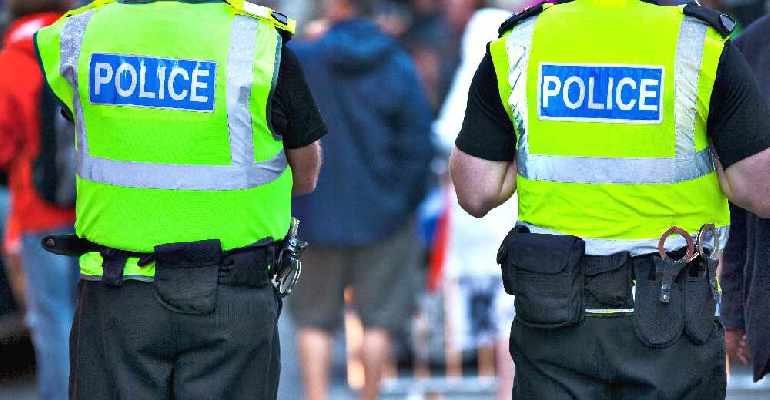 Teenager Sentenced For Planning Isle Of Wight Festival Terrorist Attack
Teenager Sentenced For Planning Isle Of Wight Festival Terrorist Attack
 Isle Of Wight Gin Company Wins Medal At 2024 London Spirits Competition
Isle Of Wight Gin Company Wins Medal At 2024 London Spirits Competition
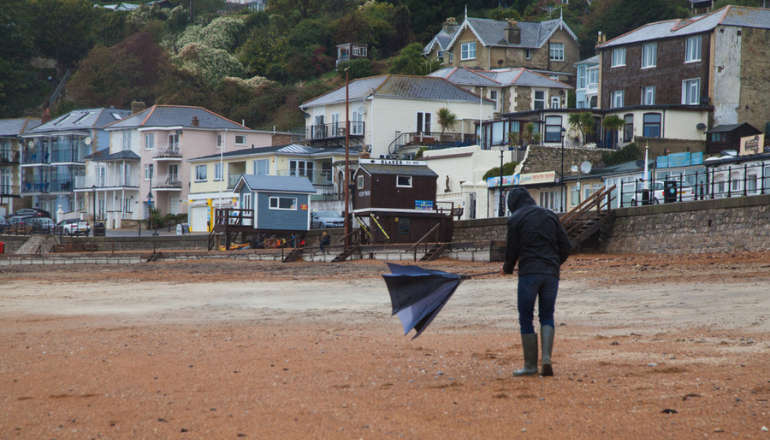 Yellow Weather Warning Issued For Isle Of Wight
Yellow Weather Warning Issued For Isle Of Wight
 Police Confirm Bembridge Beach Discovery 'Not Human Remains' Despite Reports To Contrary
Police Confirm Bembridge Beach Discovery 'Not Human Remains' Despite Reports To Contrary
 Police Investigation Updated Following Discovery Of Body
Police Investigation Updated Following Discovery Of Body
 Spitfires To Soar As Part Of D-Day Commemoration At IW Armed Forces Day
Spitfires To Soar As Part Of D-Day Commemoration At IW Armed Forces Day


